- Date2022-12-27 00:00
- View3,627
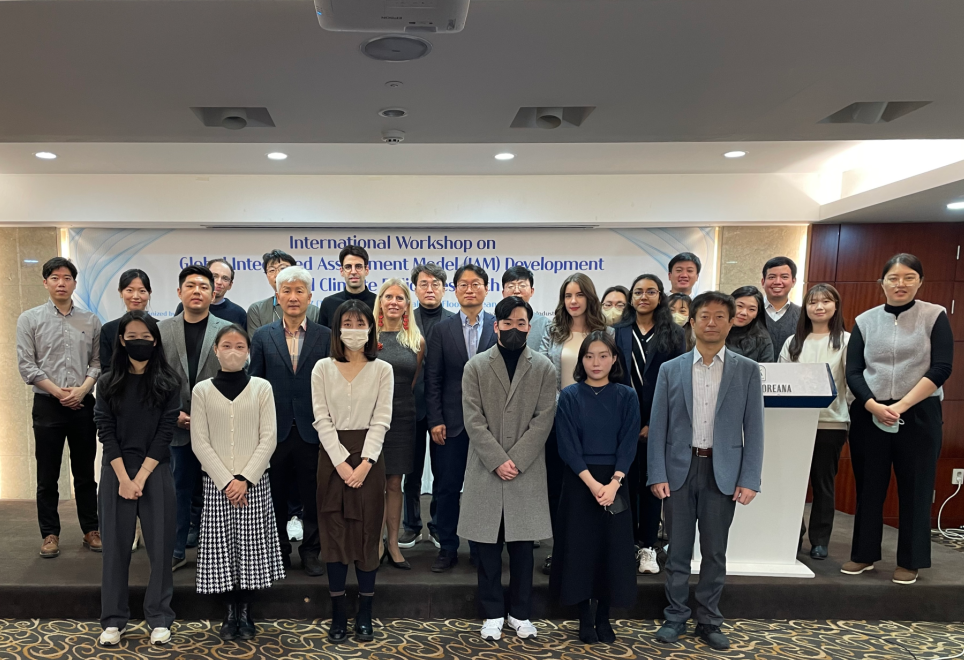
▲ Photo of the participants
KEI held the International Workshop on Global Integrated Assessment Model (IAM) Development and Climate Policy Research on December 27, 2022, in Seoul, Korea. This workshop was co-hosted by Yonsei University and Sookmyung Women's University, as part of the Climate Change R&D project for the New Climate Regime, funded by the Korean Ministry of Environment.
This international workshop invited globally well-known experts, including IPCC AR6 Working Group 3 Vice-chair, and young researchers in climate research and modeling, from various regions and countries. Researchers shared cutting-edge modeling exercises and discussed how the IAMs deal with key topics, such as Net Zero transition and circular economy. KEI, with other co-hosting organizations, shared the modeling analysis at the workshop and discussed future collaborations with distinguished researchers in the field of IAM modeling and climate policy research.
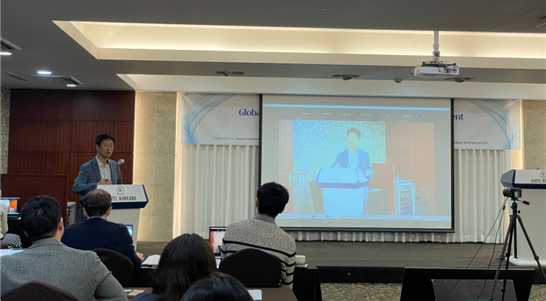
▲ Dr. Yong-Gun Kim, Director of Climate and Air Quality Research Group, KEI, chaired the presentation session.
Dr. Yong-Gun Kim, the director general of the Climate and Air Quality Research group, chaired Session 1 and invited distinguished experts in modeling. Particularly, the experts from the Center for Global Trade Analysis, Purdue University, and RFF-CMCC EIEE shared insights and expertise in establishing comprehensive IAMs and analyzing key global issues, such as the circular economy. Dr. Maksym Chepeliev of the Center for Global Trade Analysis, Purdue University, emphasized the importance of integrating top-down and bottom-up models and shared experience in linking and integrating the models and how they can contribute to climate change, energy, and economic analysis. Dr. Darius Corbier of RFF-CMCC EIEE, where they developed the globally well-known WITCH model, explained how the model could integrate the circular economy concept and shared know-how in modeling structure and key functions, such as additive CES for volume preserving, which is important in circular economy analysis. In this session, Professor Seung-Wan Kim of Chungnam National University introduced comprehensive and detailed power modeling in Korea and explained the implication of a clean energy scenario in Korea. Mr. Sushil Aryal, Ph.D. Candidate of the Asian Institute of Technology shared the analysis of hydropower-enabled energy in Nepal using the MAED-TIMES-CGE model.
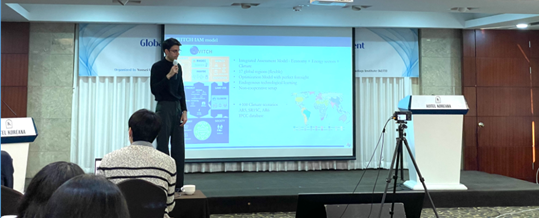
▲Dr. Darius Corbier, RFF-CMCC EIEE, Italy, is giving a presentation.
He emphasized the necessity of incorporating the circular economy in the IAM.
The Second session was led by Dr. Hyun-Jae Kim of the Korea Energy Economics Institute. Dr. Diana Urge-Vorsatz, the IPCC WG3 Vice-chair, shared her ample experience in climate policy research and the IPCC leadership. She also emphasized the mitigation potential of demand side approach, particularly focusing on building energy consumption and renewable energy in the building sector based on the building-energy integrated model. In this session, young researchers presented their experiences in modeling analysis. Dr. Jihoon Min, Research Scholar at IIASA, explained how IIASA’s MESSAGE model integrates demand-side approaches and shared useful databases for constructing global IAM. Dr. Haein Kim from the Center for Sustainability and Global Environment, the Global Health Institute, University of Wisconsin-Madison, introduced the effect of social welfare improvement through air quality improvement and health due to power sector decarbonization. Dr. Jongwoo Moon, a research fellow at KEI, presented an analysis of the impact of NDC and Net Zero Transition on low-carbon transition in Asia using a global CGE model and discussed policy implications on low-carbon transition.
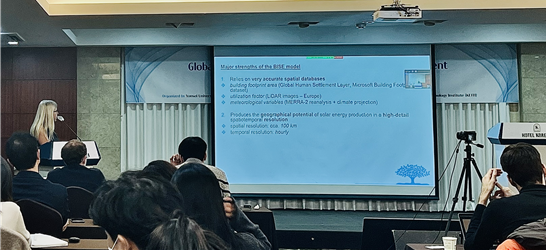
▲ Dr. Diana Urge-Vorsatz, the IPCC WG3 Vice-chair,
shared her ample experiences in climate policy research and IPCC leadership.
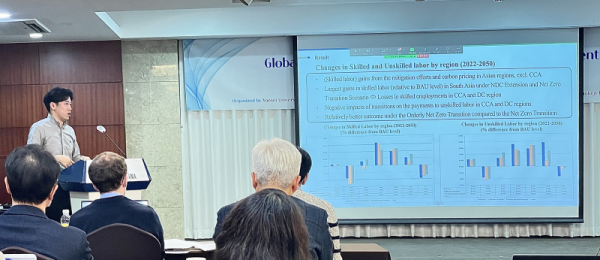
▲ Dr. Jongwoo Moon of KEI shared his study comparing the impact of NDC and
Net Zero Transition on low-carbon transition in Asia using the CGE model.
In the final discussion session, key presenters and discussants were invited and had an open discussion on the presentations, key research topics, IAM modeling, and potential cooperation in modeling and climate research. The workshop was successfully concluded with the promise of future research collaboration, sharing knowledge and know-how on IAM development. KEI will continue to take the lead in cutting-edge research and development of IAMs and policy analysis in 2023.
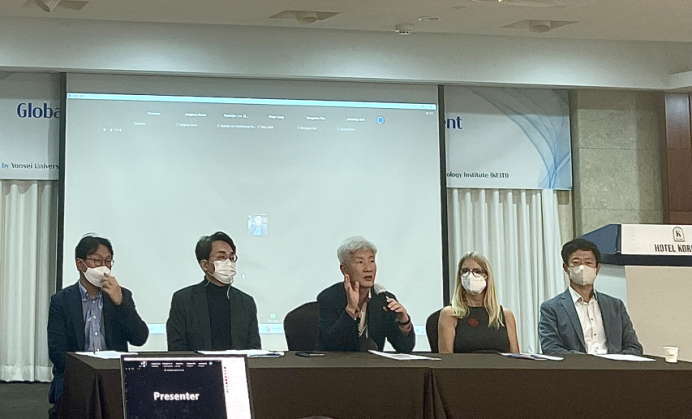
▲ Photo of panelists
- PrevA New Year's Message from the KEI President
- NextList of articles by KEI scholars published in the journals indexed in SCIE/SSCI
